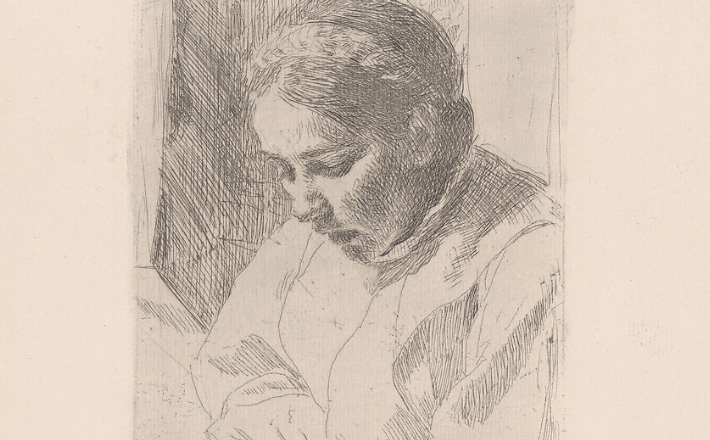Commentary on Genesis 18:20-32
Genesis 18:20–32, the gripping account of Abraham’s intercession for the city of Sodom, is far more than an ancient tale of divine judgment and human pleading. When read through the theological horizon opened by Pentecost—the moment the Holy Spirit was poured out to form the church for witness, communion, and mission—this passage emerges as a paradigmatic expression of Spirit-empowered intercession. It offers the church today not merely a model of prayer, but a compelling vision of what it means to live in active, covenantal partnership with God on behalf of a fractured world. In Abraham’s daring exchange with the Divine, we see the shape of post-Pentecost discipleship: a people who participate in divine justice, advocate for the vulnerable, and pray with bold, theologically rooted confidence.
At the heart of the passage is Abraham’s audacious appeal to God’s own character: “Shall not the Judge of all the earth do what is just?” (verse 25). He does not protest judgment as such, nor does he attempt to exonerate Sodom’s wickedness. Instead, he engages the moral logic of divine justice and holds God to his revealed nature as both just and merciful. Abraham’s posture is not presumptuous but covenantal—he speaks as one who has been invited into relationship, and he prays from within that relationship with theological clarity and moral urgency. This is not manipulation, but a form of relational trust that is deeply attuned to the nature of God.
This relational trust is expressed through a boldness that is striking in both tone and content. Abraham dares to reason with God, to press God, to seek a narrowing of judgment in light of even the slightest possibility of righteousness. His humility is evident—“I who am but dust and ashes” (verse 27)—yet it coexists with astonishing courage. He persists not because he is self-assured, but because he trusts God’s justice enough to plead for God’s mercy.
This combination of reverence and daring anticipates a central dynamic of post-Pentecost life. With the Spirit now indwelling the community of believers, the church is called to approach God not with fear, but with parrēsia—that is, with freedom of speech, boldness, and confidence (see also Hebrews 4:16; Ephesians 3:12). In the Spirit, believers pray not from a place of uncertainty, but from within the assurance that God invites, hears, and responds. Abraham’s negotiation thus prefigures the bold love that should characterize the church’s intercession: love that is unafraid to speak, to plead, to ask on behalf of the world—because it is grounded not in human worth, but in divine faithfulness.
Moreover, the moral posture Abraham embodies is not one of separation or moral superiority. He does not distance himself from Sodom’s fate. He does not withdraw to preserve his own innocence. Instead, he draws near and intercedes, putting himself at risk by identifying with a city marked by corruption. He advocates for the guilty, not because they deserve it, but because mercy is still possible.
This refusal to detach is critical for understanding the church’s role after Pentecost. The Spirit does not empower believers to escape the world’s pain, but to stand within it, in solidarity with the broken, and to speak on their behalf. The church’s mission is not to pronounce judgment from afar, but to become a presence of advocacy, compassion, and hopeful intercession, even where hope seems least warranted. Just as Christ intercedes for humanity from within our frailty, and the Spirit intercedes with groanings too deep for words (Romans 8:26), so too is the church called to a ministry of intercession that is bold, embodied, and faithful.
In this light, Abraham’s conversation with God becomes not just a model of prayer, but a model of moral life in the Spirit. His willingness to engage God is matched by his commitment to advocate for others. And together these shape a theology of intercession that is both intimate and public, deeply personal yet universally relevant. His concern is not merely for justice in abstraction, but for the preservation of life and the possibility of redemption. This same concern must animate the post-Pentecost church. To pray in the Spirit is to join in God’s redemptive mission, to labor in hope that justice and mercy are not mutually exclusive, and to believe that God listens to those who stand in the breach.
Perhaps most revelatory in this passage is not Abraham’s daring, but God’s response. The divine willingness to listen, to engage, and even to adjust the terms of judgment is not a sign of instability or uncertainty, but of justice that is always open to mercy. God’s justice is not static or predetermined. It is responsive, dynamic, and relational. Abraham’s persistence is not met with divine resistance, but with welcome.
This portrait of divine attentiveness is vital for the church’s post-Pentecost imagination. In the Spirit, we come to know a God whose will is not locked in judgment but directed toward restoration (see also John 16:8–11; 2 Peter 3:9). The church prays not to persuade God to be merciful, but to participate in mercy already in motion. Intercession is thus not a means of changing God’s mind, but a mode of co-laboring with the Spirit in God’s redemptive economy.
This movement—from Abraham’s intercession to the Spirit’s empowerment—makes it clear that the church’s identity is bound up with its willingness to stand in the gap. Genesis 18:20–32 teaches that prayer is not a passive spiritual practice, but a courageous and costly act of love. It is an expression of theological maturity and moral responsibility, one that does not shy away from the world’s realities, nor shrink back from divine holiness. It is grounded in the trust that God is not only just, but relationally just—attentive, open, and moved by the cries of those who speak from within the covenant.
Genesis 18:20–32 is a text that calls the post-Pentecost church to recover its intercessory vocation with fresh conviction. Abraham’s prayer is not merely an ancient negotiation. It is a mirror held up to the church’s calling in the age of the Spirit. To pray in the Spirit is to approach God with parrēsia, to advocate on behalf of others with compassion, and to do so from within a covenantal trust that God listens and responds. In a world in desperate need of justice and mercy, the church is called to speak, to plead, and to hope with God.


July 27, 2025